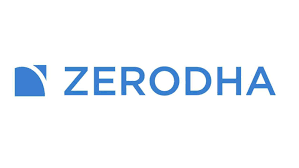The Delhi High Court on Thursday referred a trademark infringement case between Tesla Inc and Tesla Power to mediation, after both companies agreed to try and settle the dispute this way.
Starting July 18, a senior mediator from the Delhi High Court Mediation and Conciliation Centre will handle the matter. If mediation fails, a court bench will hear the case on September 18.
Chander Lall, a senior lawyer representing Tesla Inc, expressed skepticism about mediation’s effectiveness, stating that Tesla Power was unlikely to give up its brand.
“Mediation will not work when it comes to their brand—they are not going to give it up,” Lall said.
In response, lawyer J. Sai Deepak, representing Tesla Power, said, “We are open to mediation.”
Tesla Inc, the US electric vehicle giant co-founded by Elon Musk, sued Tesla Power India Pvt Ltd on May 2, accusing the Gurugram company of infringing on its trademark and misleading consumers by implying an association with its EVs. Tesla Inc claimed this caused customer confusion and potential reputational damage as it plans to enter the Indian market.
Lall reiterated that Tesla Power was not abiding by court orders and continued to sell e-scooters on IndiaMart. He also mentioned receiving personal calls from people alleging they had been cheated by Tesla Power.
“They say they have been charged lakhs of rupees and then abandoned,” Lall said.
According to Sai Deepak, the Tesla trademark is not unique, as there are many companies and registrations with this name in India, Taiwan, and other countries.
“Therefore, for someone to come out and say that because of Elon Musk, we are the only ones who are entitled to claim Tesla and a monopoly over it, frankly speaking, doesn’t fly,” he said.
On May 30, Tesla Power informed the court that it had instructed its partners and vendors to remove the Tesla logo from their electric scooters to comply with a May 2 Delhi High Court order prohibiting the sale and promotion of products bearing the Tesla trademark. Tesla Power clarified that it had no intention to market its electric scooters under the Tesla brand.
The Indian company stated that 699 e-scooters bearing the Tesla trademark had been sold by its partners and dealers so far. Tesla Power’s partner company, e-Ashwa, was primarily responsible for selling the e-scooters.
The court instructed Tesla Power to take further steps to comply with its orders and refrain from engaging in any EV business using the Tesla trademark.
The US company informed the court that Tesla Power was still selling e-scooters with the Tesla logo even after agreeing on May 2 to cease all EV-related sales. Tesla Inc. claimed that the Indian company had violated the court’s order.
On May 2, the Delhi High Court restrained Tesla Power from publishing promotional advertisements featuring EV products under the Tesla trademark, following Tesla Inc’s plea. The US company claimed Tesla Power not only had a similar trademark but also advertised itself as an EV company in newspapers, leading to consumer confusion and complaints directed to Tesla Inc.
Tesla Power argued that its primary business was supplying lead-acid batteries for automobiles, inverters, and UPS systems, and that it was not involved in manufacturing EVs. The company said advertisements featuring the Tesla name were part of a marketing alliance with another EV manufacturer, E-Ashwa, and that it had no intention of producing or marketing EVs under its own brand.


